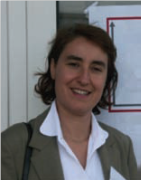RSPP Annual Paper Award (for the Best Paper in Regional Science Policy and Practice)
(All papers published in 2025 in Regional Science Policy and Practice will be considered for the award)
Winner 2025The Committe, made up of Denise Pumain (ERSA), Kara Kockelman (NARSC), Carlos Azzoni (LARSA), and Neil Reid (NARSC), evaluated five very good papers -pre-selected by the RSPP EiC, Andrea Caragliu- and decided that this year the Award goes to:
The winner was chosen because of its touching upon two very relevant topics for the regional science policy literature, viz. (i.) the role of agglomeration economies in driving territorial income imbalances, and (ii.) whether policies should target territories, rather than individuals. The paper originally exploits Spanish micro data to show that, in a low density context, the urban-rural income gap decreases as a result of fiscal interventions, while also documenting relevant spatial heterogeneity in the gaps across Spanish regions. These results offer a significant contribution to the regional science literature dealing with the role of national and regional policies in shaping local welfare levels. |
Winners 2024
Focusing on Chengdu Region in China the paper uses mobile phone data to understand rural mobility and the social and orographic factors that influence it. The look into human mobility in remote rural areas, the innovative use of big data and the clear methodological approach allow robust new evidence on rural mobility and justify adequate policy advises. AND
The paper estimates the relation between wages and unemployment considering spatial interaction. Results show the existence of diverse labor markets and concludes that policy makers should be aware of measures to protect formal jobs that, at local level, can increase the wage with informal workers. It is clearly a very good paper able to generate a new common sense on the functioning of labor markets when space is considered. |
Winners 2023
The paper tries to find the effect of geographical features in transport accessibility for white and black in Salvador (Brazil), estimates and index of accessibility and applies a two-stage least square regression relating it to history using the proxy of geography (valleys), to density and to race. Conclusions indicate the trade-offs density and accessibility while indicating the effect of transport policies in the social profile or the urban structure. It is an important topic of human interaction within space, analysed with replicable methods and creative generation of data, leading to interesting policy awareness. The paper has a very nice background information on Salvador, focus an interesting topic with a well-executed analysis that includes physical geographic variables and using transport mode-choice issue which is important in Latin America. AND
This paper analyzes regional inflation dynamics in Indonesia and, estimation a spatio-econometric model, finds the transmission of price changes from regions to regions. Results are very interesting for an archipelago but also can be very useful for large monetary areas. A study that is ahead and leads to way to study the interaction between regional and monetary policies. It is an innovative space-time analysis. The adjustment to the Indonesian archipelago spatial context makes of an interesting application with the results for different components of inflation of general interest. |
Winners 2022
The paper aims to analyze the impact of depopulation, the context and the party programs on election results in the Netherlands. It is a very interesting and robust paper with a promising impact on methodology, public participation, policymaking and regional development. AND
The paper examines the role of the proximity between university and the industry to explain innovation in Brazil. It is a very interesting paper links cognitive proximity with innovation in a developing country. |
Winners 2021
"Very thorough study using state-of-art regional science methodology to study effects of the Bolsa Familia programme in Brazil, showing an Interesting and pedagogical method to analyse the regional redistribution of income with very good data and important results for policy makers. Spatial and social redistribution of public money is an important topic and a good exemplar of a RSPP article." AND
"The paper focus a cutting-edge topic using a fine-grained neighbourhood modelling leading to interesting empirical findings s as well as specific and focused policy recommendations tied to the study results. It is a very relevant demonstration that it is possible and advisable to get scientific evidences from emergent phenomena that can be useful for policy makers." |
Winners 2020
"Interesting paper for showing structural differences between large- and small-scale productions, with an informative characterization and a clear presentation of integrated methods that allow the analysis of a local and global issue (deforestation) also looking into rural innovation. Somewhat descriptive and eclectic, but uses interview data and interesting methodology to examine spatial linkages and proximity effects using empirically testable models out of qualitative fieldwork. The principles clearly articulated in the paper can be applied in numerous different contexts across many countries and regions and will be of real interest to wide range of regional scientists tackling policy-relevant challenges in contexts where there is a paucity of secondary data. It is an enlightening Policy & Practice entry-level paper for a bright student to get his/her feet wet with this general topic." |
Winners 2019
AND
|
Winners 2018
"The paper is a nice and complete package. An accepted methodology thoughtfully applied to a national economy to review shifts in sectoral or regional shares. It is an enlightening Policy & Practice entry-level paper for a bright student to get his/her feet wet with this general topic." |
Winners 2017 |
Winners 2016 |
1. Goal
The Award recognizes annually a scientist who have demonstrated creativity, merit and prospective effectiveness through the publication of a paper of remarkable quality in Regional Science Policy and Practice.
2. The Award
2.1 The award recognizes and honours practitioners, policy makers and scientists that with their work, decisions and research helped the development of peoples and places.
2.2 The Prize is annual and awards the best paper published in the Issues comprising an annual Volume of Regional Science Policy and Practice.
2.3 Normally no more than one paper may be selected from an annual Volume of RSPP, but in exceptional circumstances two (2) papers may be selected for the Award.
2.4 The Award involves the payment of 750 € and certificates for the authors.
3. Jury and Process for Recommending the Award
3.1 In the first quarter of each year, the Editor in Chief of Regional Science Policy and Practice identifies a list of at least three (3) papers published on the Volume of the previous year.
3.2 The Editor-in Chief of Regional Science Policy and Practice will then send the papers for appraisal to the jury composed by the Editor in Chief, one editor and three Fellows proposed by the Editor-in-Chief to the Council
3.3 The Jury will appraise and rank the papers in a meeting in person and/or by email/teleconference in March to select the paper to receive the Award.
3.4 The Editor-in-Chief of Regional Science Policy and Practice will inform the Executive Director of RSAI of the decision of the Jury, and the Executive Director of RSAI will inform the recipient(s) of the Award.
3.5 The Awardee(s) will be invited to attend one of the Supra-Regional (NARSC, LACRSA, ERSA, PRSCO) meetings or the RSAI World Congress to receive the Award.



 Loras-Gimeno, D., Gómez-Bengoechea, G., & Díaz-Lanchas, J. (2024). Fiscal redistribution and the narrowing urban–rural income gap. Regional Science Policy & Practice, 16(5), 100045.
Loras-Gimeno, D., Gómez-Bengoechea, G., & Díaz-Lanchas, J. (2024). Fiscal redistribution and the narrowing urban–rural income gap. Regional Science Policy & Practice, 16(5), 100045. 
 X Gao, L Liu, D Ou, H Yuwu (2023), Using mobile phone data to probe the mobility‐ related well‐being of rural residents: A case study of Chengdu, China. Regional Science Policy Practice 2023 15 (9), 1893-1907. DOI:
X Gao, L Liu, D Ou, H Yuwu (2023), Using mobile phone data to probe the mobility‐ related well‐being of rural residents: A case study of Chengdu, China. Regional Science Policy Practice 2023 15 (9), 1893-1907. DOI: 

 Ana Maria Bonomi Barufi, Eduardo Amaral Haddad, Peter Nijkamp (2023), Urban agglomeration, city size, and spatial density effects on wage flexibility: New evidence on the wage curve in Brazil. Regional Science Policy Practice 2023 15 (9) Pages 1998-2026. DOI:
Ana Maria Bonomi Barufi, Eduardo Amaral Haddad, Peter Nijkamp (2023), Urban agglomeration, city size, and spatial density effects on wage flexibility: New evidence on the wage curve in Brazil. Regional Science Policy Practice 2023 15 (9) Pages 1998-2026. DOI: 
 Daniel S. A. Carvalho and Gervásio F. Santos (2022) Transport and density of population groups in the urban area of the city of Salvador. Regional Science Policy Practice 14(6), 234-253.
Daniel S. A. Carvalho and Gervásio F. Santos (2022) Transport and density of population groups in the urban area of the city of Salvador. Regional Science Policy Practice 14(6), 234-253.  Harry Aginta (2022) Spatio-temporal analysis of regional inflation in an emerging country: the case of Indonesia. Regional Science Policy Practice 14(3), 667-688.
Harry Aginta (2022) Spatio-temporal analysis of regional inflation in an emerging country: the case of Indonesia. Regional Science Policy Practice 14(3), 667-688. 
 Eveline S. van Leeuwen, Solmaria Halleck Vega and Vera Hogenboom (2021) -
Eveline S. van Leeuwen, Solmaria Halleck Vega and Vera Hogenboom (2021) - 



 Emerson Gomes Santos, Renato Garcia, Veneziano Araujo, Suelene Mascarini and Ariana Costa (2021) -
Emerson Gomes Santos, Renato Garcia, Veneziano Araujo, Suelene Mascarini and Ariana Costa (2021) - 
 Gabriel Lyrio de Oliveira and André Luis Squarize Chagas (2020) -
Gabriel Lyrio de Oliveira and André Luis Squarize Chagas (2020) -  Kevin Credit (2020) -
Kevin Credit (2020) - 

 André Torre, Etienne Polge and Frederic Wallet (2019) -
André Torre, Etienne Polge and Frederic Wallet (2019) - 
 Luc‐Normand Tellier and Jérémy Gelb (2018) -
Luc‐Normand Tellier and Jérémy Gelb (2018) - 
 Patrícia C. Melo and Daniel J. Graham (2018) -
Patrícia C. Melo and Daniel J. Graham (2018) - 

 Manuel Gómez‐Zaldívar, Marco T. Mosqueda and J. Alejandra Duran (2017) -
Manuel Gómez‐Zaldívar, Marco T. Mosqueda and J. Alejandra Duran (2017) - 
 Jinwon Bae
Jinwon Bae


 Roberto Camagni and Roberta Capello (2015) -
Roberto Camagni and Roberta Capello (2015) -